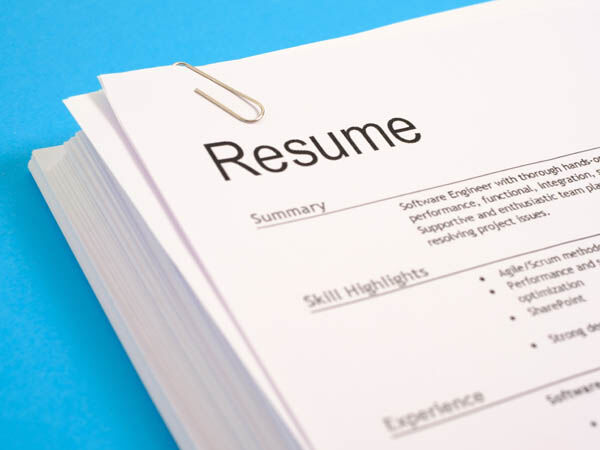Did you know that more than 30% of CVs/resumes are not reliable? David Goldenberg is well aware of this fact, having been a manager in a consulting agency, based in Brussels, who had to review and verify resumes on a regular basis.
“On one occasion I just had a feeling about a mismatch between the person I was interviewing and their resume,” says David. “In Brussels, at that time, it wasn’t common to run a background check on someone. I saw all the keywords, all the diplomas listed on the C.V., but I had to ask myself, is this person real? Turns out they were not. Everything had been forged. So, then I had to ask myself a different question—what are the odds that this could happen again?” Considering that David was reading 10-30 resumes a day, he felt as though he and others had been taking a naïve approach. When he dug into the research, he discovered startling statistics.
“According to the studies I found, 30-40% of items on resumes aren’t 100% true.”
What troubled David more was that the only apparent solution relied on professional background checkers. “This is not the vision of the future, I thought to myself. We need a factual check in real time. Does this person really have a PhD from MIT? And, a bigger question, is there a way to build a more trustful resume?”
Taking his idea to MIT
At MIT, we teach that entrepreneurship can be taught. It’s not something you are born with, but a craft that can be learned and honed. That being said, there are some people who almost can’t help but be entrepreneurs. People who can’t get a problem out of their head until they’ve solved it. David Goldenberg is one of those people.
David decided he wanted to look at the problem from the other side. Was there a way to institutions, like MIT, to protect their brand and verify certificates and degrees? He thought there had to be a way to create this, but how?
“I told my boss that I needed take a week off to work on this idea. He asked me, ‘do you have a methodology to create something disruptive?’ He was right to ask the question, especially since this was a disruptive idea—the idea of protecting a brand in a click. And maybe it could be the genesis of a new industry, the trust industry. It was very exciting.”
David spent a couple days looking at entrepreneurship programs where he could challenge this idea. “I knew the next steps wasn’t just me testing this idea in Brussels by myself,” says David.
"According to the studies I found, 30-40% of items on resumes aren’t 100% true."

Then David discovered the MIT Sloan Entrepreneurship Development Program, he knew it was a fit. “My goal was to test the idea and know with certainty, after those five days, if this is a ‘go] or a ‘no go.’”
On the first evening of EDP (David was part of the 2009 cohort), teams formed around startup ideas. David dubbed his concept “Trust CV.” He was quickly able to form a team, and together they put the idea through Bill Aulet’s 24-step framework, ultimately pitching the idea to judges, faculty, peers, and venture capitalists on the last day of the week-long course.
His conclusion after five days of EDP?
“I quit my job.” David set up CV Trust and quickly traded his corporate mindset for a start-up one.
“For me, this start-up mindset meant being quiet and listening to the sharpness of seasoned entrepreneurs, adjusting to working under extreme pressure with a high level of uncertainties, and always building capability. When I left MIT, I didn’t have funding, a contract, a team, nothing. But I knew how to build the right methodology and move it forward. And perhaps most importantly, I learned during those five days that I was up for it, I had the energy for it. MIT gives you the pressure, but it’s good pressure. Positive pressure.”
Simplifying trust
That’s not to say that David’s path to CVTrust, a now successful global document security business, ran smooth.
“If I had known the risks, I would have stopped before I started,” David says, recounting the trials and tribulations of understanding and launching across Europe’s 30 unique markets, for example. Fortunately, he persisted.
Today, the company’s Smart CertificateTM platform gives global educational institutions the tools to securely create, manage, and deliver academic certificates and related documents and arms them with a practical instrument to fight against fraud and maintain institutional reputation. Certificate holders can also demonstrate the authenticity of their academic and learning qualifications and integrate them into social media profiles such as LinkedIn. And, the job of recruiters is that much easier, once they spot the Smart Certificate stamp of approval.

Each Smart Certificate is unique and contains a built-in security component that can be verified in a single click. The blockchain technology utilized by the platform makes it nearly impenetrable—it would require a sophisticated hacker to break into the highly encrypted system. Although the risk of forgery can never be eradicated, it is much lower than the risk of having a student either forging a paper diploma or buying a fake diploma online, which is so common today.
At MIT Sloan Executive Education, we use Smart Certificate to grant secure certified digital copies of MIT Sloan Executive Certificates and provide participants with an easy way to share their verified credentials with recruiters, future employers, and professional networks. And during this time of social distancing and online learning, the technology reinforces the digital transformation of our institutional activities. We’re thrilled that our own Entrepreneurship Development Program played a role in bringing this critical technology to market.








